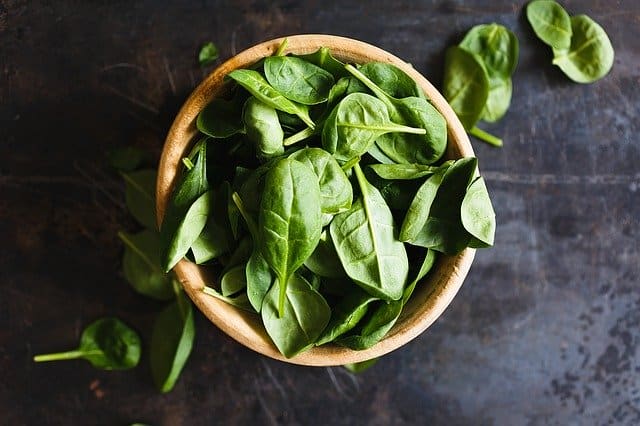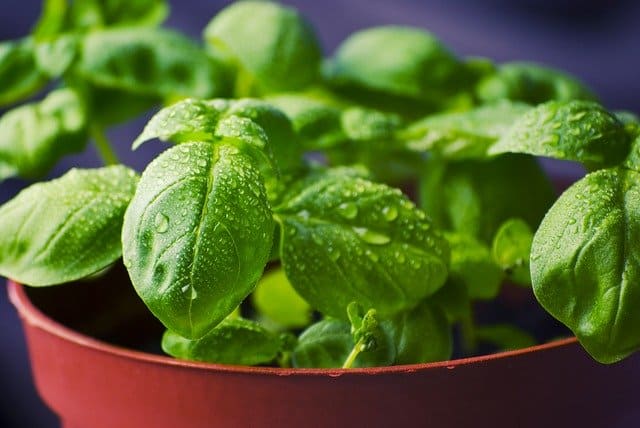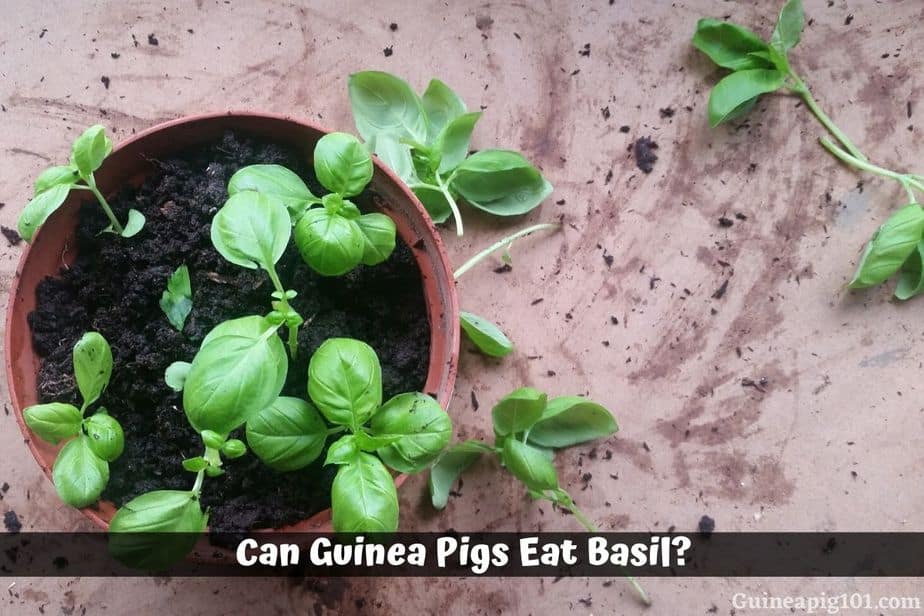Basil is a tasty and nutritious herb. Basil is also rich in antioxidants that can prevent a wide array of health issues. As a guinea pig owner, I was really curious to know if guinea pigs can eat basil or not. So, I did some research, and here is what I have learned.
Guinea pigs can eat basil but only in moderation. Basil is loaded with many vitamins, minerals, and antioxidants, which helps fight with diseases. But it also contains a decent amount of calcium, and consuming excess calcium is terrible for guinea pig’s health.
Vegetables and herbs are integral part of our guinea pig’s diet. They provide your guinea pigs with a wide range of nutrients that they need for healthy living.
But how good is basil for our guinea pigs? How much basil can they eat and what are the side-effects we must know about. Let us learn all about it in detail.
Are guinea pigs allergic to basil?
No, guinea pigs are not allergic to basil. They can enjoy eating basil.
It is an excellent choice to add basil on your guinea pig’s diet.
Basils are incredibly nutritious as they are filled with vitamins, minerals, and antioxidants.
But after feeding them with basil, always keep them under observation. If they show any discomfort regarding the food, immediately remove it from their diet.
Do guinea pigs like basil?
It may depend upon the personal preference of your guinea pig. This means some guinea pigs will love to eat basil, and some guinea pigs will simply oppose it.
To check whether they like to eat basil or not, just serve them with a small amount. If they munch on it, then you can feed them basil.
Some guinea pigs can be allergic to a particular food, so if your guinea pigs show any allergic reaction to basil then immediately remove it from their diet.
If you are adding basil to your guinea pig’s diet for the first time, then you must keep a few thing in mind. But always remember to follow some steps to keep your guinea pigs safe.
- The first step will always be serving your guinea pigs with a small amount of food.
- Then after serving them, the food keeps them under observation.
- If they show irregular behavior or any sign of discomfort, then immediately remove the food from their diet list.
Now that you are aware that guinea pigs are not allergic to basil, you must be interested in tossing some in.
But wait! There are a few things you need to keep in mind before tossing basil leaves into your guinea pig’s cage.
Are guinea pigs allowed basil?
Yes, guinea pigs are allowed to have basil as they are highly nutritious for guinea pigs because they are loaded with Vitamin K, calcium, phosphorus, and many other nutrients.
But they also have some terrible effects on our guinea pig’s health.
Let’s discuss the hazards of basil.
- Urinary problems: Basil is loaded with calcium and phosphorus. Calcium helps make bone secure, and phosphorus helps build healthy teeth and clean waste materials from the kidney.
- However, Excessive calcium consumption can lead to kidney stones and many urinary issues
- Also. Excessive use of phosphorus can lead to nausea, vomiting, diarrhea, and constipation.
- Digestive problems: Basil is rich in dietary fiber. Dietary fiber helps your guinea pigs to digest food properly. But overfeeding of anything is harmful, and similar goes for dietary fiber as well. As excessive feeding of dietary fiber can lead to constipation or improper bowel movement.
Healthy basil plants for guinea pigs?
There is a wide variety of basil available out there. Let’s discuss the types of basil plants that guinea pigs can eat:
- Sweet basil: They are delicious and comes in green color, and they are pretty safe to serve your guinea pigs.
- Genovese basil: They have dark green leaves and sweet ones. They have a beautiful fragrance, and your guinea pigs can safely enjoy them eating as they are harmless.
- Thai sweet basil: They grow in the garden, and they have purple flowers. These are harmless for guinea pigs.
- Purple basil: They are purple. Sometimes they tasted sweet, and sometimes they provide clover taste.
- Lemon basil: They have beautiful lemon essence in them, which your guinea pigs can like eating, and they are harmless.
- Holy basil: They may taste a little bitter, but they provide a lot of benefits to your guinea pigs as they can prevent cough and cold, kidney problems, and other health issues.
- Cinnamon basil: Your guinea pigs can undoubtedly munch on cinnamon basil as they are delicious and healthy. They have purple stems and pink flowers.
- Greek basil: They can grow in a garden and also in the pot as they are small. You can serve your guinea pigs greek basil alone or with some vegetables.
These are types of basil that your guinea pigs can eat.
How much basil can guinea pig’s eat?

Guinea pigs can eat 1-2 leaves of basil per serving.
Make sure you serve them sparsely and mix it with other healthy vegetables to create a well-balanced diet.
Also, serve basil 2-3 times a week only. Frequent feeding is not good for them either.
Can guinea pigs eat raw fresh basil?
Yes, guinea pigs eat fresh basil. They should always be served with fresh basil as it will be easy for them to digest raw and fresh food properly without any harm and they should not eat cooked or boiled basil.
But never feed them too much of basil as it contains a chemical in them known as estragole, which can lead to liver damage.
Can guinea pigs eat basil leaves?
Yes, guinea pigs can eat basil along with their leaves.
Before serving them with basil leaves, always remember to clean them with fresh water so that all the chemicals and dirt attached to eat get clean.
Overfeeding of basil leaves can be a reason for digestion problems, so it will be better to feed them in moderation.
Can guinea pigs eat basil stems?
Yes, guinea pigs can eat basil stems. Basil stems carry a lot of vitamin C in them, which guinea pigs can not produce on their own.
However, basil stems contain calcium in them, which is terrible for for them if fed in excess.
So feed them basil stems but in moderation so that they can digest it properly and don’t suffer from health issues.
Can guinea pigs eat basil flowers?
Yes, guinea pigs can eat basil flowers. Basil flowers are surely edible, and they are sweet in taste as well.
Your guinea pigs will enjoy basil flower’s taste, and feeding them in moderation will also keep them safe from health problems.
But there are some flowers which taste bitter. So some guinea pigs may not like that taste.
Benefits of feeding basil to our guinea pigs
You are already aware of the side effects of overfeeding basil to your guinea pigs. But basil is a very nutritious food, and it has many benefits for our guinea pigs as well.
Now we will discuss the benefits of basil:
- Promote healthy bones: Basils are rich in calcium and phosphorus. Calcium and phosphorus are essential for your guinea pig’s health system. Calcium helps increase your guinea pig’s bone strength, and phosphorus helps clean all the wastages present in your guinea pig’s kidney.
- Improve heart: Basil is loaded with dietary fiber and potassium.
- Dietary fiber present in basil helps to lower the cholesterol level in your guinea pig’s body.
- Potassium helps to reduce the blood pressure by hydrating your guinea pig’s body.
- Presence of antioxidant: Along with other healthy components, basil also contains antioxidants in them. The presence of antioxidants helps our guinea pigs to stay healthy and safe from severe health issues.
- Wound healing: Basil contains Vitamin C in them, which is extremely important for guinea pig’s health. Vitamin C helps their immune system to heal any kind of wound much quickly.
- Prevention of scurvy: Scurvy is a disease that is caused by the lack of Vitamin C. You already know that guinea pigs can not produce Vitamin C on their own. So basil plays a significant role in their health system by providing the right amount of Vitamin C to prevent scurvy.
- Fight against cancer: Some phytochemicals present in basil help prevent lung, liver, and skin cancer.
- Boost the immune system: Basil contains many nutrients, such as Vitamin C, Vitamin k, potassium, calcium, and many other nutrients that help improve the immunity system of your guinea pigs.
- Improves vision: Basil is consists of Vitamin A and beta carotene. These nutrients help to strengthen the vision and eyesight of your guinea pigs.
Basil As A Remedy
Basil is very fresh and nutritious food to add to your guinea pig’s diet.
As we have already discussed the benefits of basil, but basil can also work as a remedy for some health problems.
Below are some health problems mentioned that can be treated with basil.
- If your guinea pigs are facing digestion related problems.
- If your guinea pigs are bloating, then you can serve them basil.
- Basil can help your guinea pigs to hydrate their body.
- Basil also helps in acid reflux.
Can nursing guinea pigs have basil?
Yes, nursing guinea pigs can eat basil.
You need to take proper care of a nursing guinea pig, especially with their diet. They should be served with appropriate fresh vegetables and calcium loaded hay.
Also, we need to serve them food that contains a lot of Vitamin C in them. Basil contains a good amount of Vitamin C in them, which is essential for nursing guinea pigs as it will help them keep up with their nutrients need.
But always feed them in moderation as excessive feeding of basil can lead to digestion problems.
How to feed guinea pigs basil?

Guinea pig’s stomach mainly accepts foods that are fresh and healthy for them. So whenever you are feeding your guinea pigs, you need to keep in mind some steps.
- The first step is that you need to pick fresh and green colored basils.
- The next step is to clean them properly so that all the dirt and chemicals attached to it get clean so that they don’t harm your guinea pigs.
- Then you need to chop them in small pieces so that your guinea pigs can munch on them easily.
- You can serve them alone, or you can help them with some other veggies in a bowl.
My Guinea pig ate too much basil?
Basil is an outstanding food to add to your guinea pig’s diet. They are loaded with nutrients that are beneficial for guinea pig’s health. But you need to know that guinea pigs have a small stomach and a sensitive digestive system.
As a guinea pig owner, you need to take proper care when it comes to their food. So this is why it is highly recommended to feed them basil in moderation or two to three times a week only.
Suppose your guinea pig ate too much basil. Then they will show some signs that will signify that they are in discomfort.
The symptoms are lethargy, going away from food, and also going away from you, weakness, digestion problems, constipation, etc. If you find any of these signs in your guinea pigs, then they are in pain.
If they are in pain, then the first thing you need to do is that call their vet and follow all the steps prescribed by the vet or take them to a veterinary clinic.
Also read:
- Hay for your guinea pigs(What type, How much and more)
- Guinea pig diet: A complete A-Z of what guinea pigs can eat!
- What can I do if my guinea pigs are not eating their veggies?
You must take good care of your guinea pigs, especially of their diet as a poor diet can lead to life-threatening situation for your guinea pigs.
Source: Nutrition in basil, Benefits of basil.
